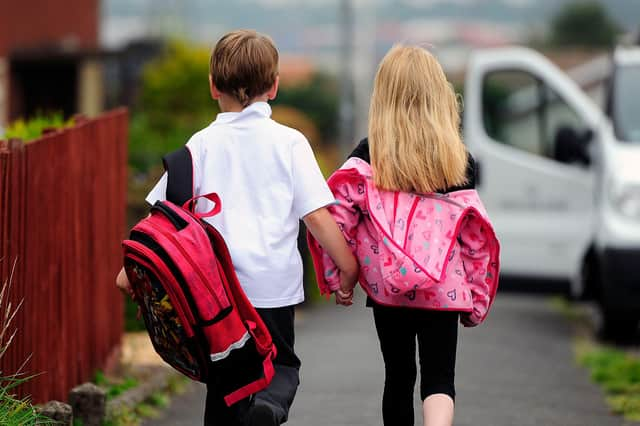Scottish Child Payment will help tackle poverty and make UK government austerity less severe – Shirley-Anne Somerville MSP


We started this parliamentary term with the ground-breaking Child Poverty (Scotland) Act with targets to reduce and eradicate child poverty and an ambitious Tackling Child Poverty Delivery Plan. And last year, as part of this, we announced a brand new benefit designed to tackle child poverty head on – the Scottish Child Payment.
This is one of the single most transformational policies introduced since devolution and will make a direct and significant impact to the incomes of thousands of low-income families.
Advertisement
Hide AdAdvertisement
Hide AdScotland is the only part of the UK where this additional payment for families with young children will be available which is why campaigners have described it as "game-changing”.
This new payment will pay £10 per week, per eligible child under 16 by the end of 2022 – subject to the Department for Work and Pensions giving us the data we need to make top up payments.
However, as we know that almost 60 per cent of all children in poverty in Scotland live in a family with a child under the age of six, we prioritised the early introduction of the payment for this group to make the biggest impact for families who need this help the most.
I am therefore delighted that despite the impact of Covid-19, we started taking applications for this new benefit last Monday for children under six – with payments to start from February 15.
With up to 194,000 children being eligible for this new benefit, and the economic impacts of Covid-19 hitting low-income families hard, we are expecting a significant demand for this new payment which is why we opened the application process early.
I am pleased to confirm that initial management information indicated that, by Wednesday last week, over 28,000 applications were received – a significant amount in just a few days.
I would encourage parents on tax credits or a qualifying benefit to apply by visiting mygov.scot/benefits or calling 0800 182 2222.
Together with our other new social security benefits, Best Start Grant and Best Start Foods, the Scottish Child Payment will provide over £5,200 of financial support for eligible families by the time their first child turns six, around £4,000 more than elsewhere in the UK.
Advertisement
Hide AdAdvertisement
Hide AdWhilst the most recent official statistics indicate that child poverty levels are six percentage points lower in Scotland than the UK as a whole, that’s not how this government will benchmark the quality of life lived by our citizens.
Our new Scottish Child Payment will not only help raise children out of poverty, it is also designed to help prevent those just above the poverty threshold from going under it. This is a real preventative measure that will tackle child poverty head-on and help mitigate against continuing UK government austerity.
Shirley-Anne Somerville is the SNP MSP for Dunfermline and Social Security Secretary
A message from the Editor:
Thank you for reading this article. We're more reliant on your support than ever as the shift in consumer habits brought about by coronavirus impacts our advertisers.
If you haven't already, please consider supporting our trusted, fact-checked journalism by taking out a digital subscription.
Comments
Want to join the conversation? Please or to comment on this article.